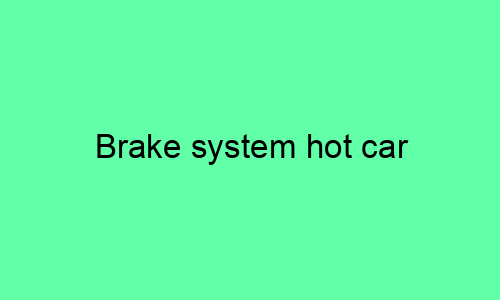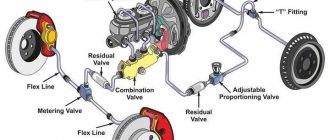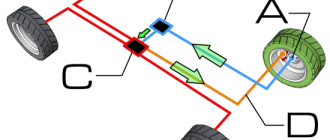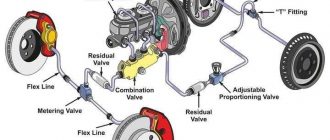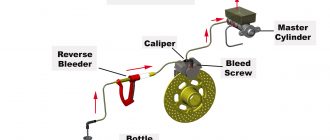##
###
The brake system is one of the most important safety features on a car. It allows the driver to control the vehicle’s speed and stop it safely. However, when the brake system overheats, it can become ineffective, which can lead to an accident.
There are a number of factors that can cause the brake system to overheat, including:
* **Heavy braking:** Braking hard for an extended period of time can cause the brake pads and rotors to overheat. This is especially common on mountain roads or when towing a trailer.
* **Driving in stop-and-go traffic:** Constantly stopping and starting in traffic can also cause the brake system to overheat. This is because the brakes are constantly being applied and released, which generates heat.
* **Malfunctioning brake components:** A malfunctioning brake caliper or master cylinder can also cause the brake system to overheat. This is because the caliper or master cylinder may not be able to properly apply or release the brakes, which can lead to overheating.
###
There are a number of symptoms that can indicate that the brake system is overheating, including:
* **A burning smell:** If you smell a burning smell coming from the brakes, it is a sign that the brake system is overheating.
* **Smoke:** If you see smoke coming from the brakes, it is a sign that the brake system is overheating.
* **Spongy brake pedal:** If the brake pedal feels spongy or soft, it is a sign that the brake system is overheating.
* **Loss of braking power:** If the brakes are not stopping the car as well as they used to, it is a sign that the brake system is overheating.
###
If you experience any of the symptoms of brake system overheating, it is important to take the following steps:
1. **Pull over to a safe location:** If possible, pull over to a safe location as soon as you notice the symptoms of brake system overheating.
2. **Turn off the engine:** Turn off the engine to allow the brake system to cool down.
3. **Let the brakes cool down:** Do not attempt to drive the car until the brakes have had a chance to cool down. This may take several minutes.
4. **Inspect the brake system:** Once the brakes have cooled down, inspect the brake system for any signs of damage. If you see any damage, do not drive the car and call a tow truck.
###
There are a number of things you can do to prevent brake system overheating, including:
* **Avoid hard braking:** If possible, avoid braking hard for extended periods of time. This is especially important on mountain roads or when towing a trailer.
* **Drive in a smooth, controlled manner:** Avoid driving in a stop-and-go manner. This will help to reduce the amount of heat generated by the brakes.
* **Have the brake system inspected regularly:** A qualified mechanic can inspect the brake system and identify any potential problems. This will help to prevent brake system overheating.
###
The brake system is one of the most important safety features on a car. By following these tips, you can help to prevent brake system overheating and keep your car safe.
